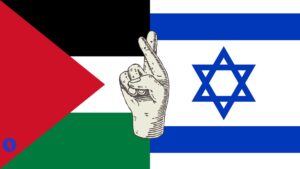Just after 9pm last night (Sunday local time), Russia’s electoral authorities announced Russian President Vladimir Putin had been re-elected with ~88% of the vote, seizing his 5th consecutive term as Russia’s leader since 1999.
Assuming Putin (71) completes this next six-year term, he’ll eclipse Joseph Stalin’s 29 years to become Russia’s longest-serving leader in centuries (Nicholas I held power for 30 years from 1825).
So, what does all this mean? Putin, his supporters, and state-run media are declaring it a landslide display of national unity during wartime.
Stay on top of your world from inside your inbox.
Subscribe for free today and receive way much more insights.
Trusted by 148,000+ subscribers
No spam. No noise. Unsubscribe any time.
Elsewhere, it’s still seen as a sham due to various factors:
Candidates
Any remotely plausible opposition is now either disqualified (Boris Nadezhdin), exiled (Mikhail Kasyanov), jailed (Ilya Yashin), or dead (Alexei Navalny).
That’s left Putin running against three candidates who were either unheard of, or unelectable (the Communist Party candidate came a distant second with ~4%).
Campaigns
The three candidates who wereallowed to run against Putin… didn’t really run, offering no direct criticism of the man who’s been running Russia since 1999.
Meanwhile, leaked Kremlin documents obtained by Estonian outlet Delfi showed plans for a vast, $1B pro-Putin propaganda effort to boost his turnout.
Coverage
The result was a dull race, which might’ve been the point. Golos, the NGO that’s highly regarded in the West (and listed as a foreign agent in Russia), claims (🇷🇺) the limited state media coverage sought to ensure “citizens didn’t even know the elections were on”. And independent media has now mostly been muted.
Co-opting
Against that high-propaganda and low-interest backdrop, there were reports of state workers and others being bused into voting booths on Friday (which became a presidential election voting day for the first time this year).
Russia also ran ballots in Russian-occupied areas of Ukraine, where armed troops reportedly escorted electoral workers door-to-door to collect resident ballots.
So… beyond the obvious (hold onto power), what’s the point of all this?
Maintaining an electoral fig leaf offers a pressure valve for discontent and a way to blunt criticism from abroad, while still curating the end result.
At the same time, a ‘landslide’ allows Putin to send signals to allies and adversaries, both at home and abroad. At home, it aims to assure his elite backers (and discourage his critics) that Putin isn’t going anywhere. Abroad, the aim is to project unity and resolve against Ukraine and its Western partners, while stiffening the necks of new friends in Beijing, Pyongyang and Tehran.
But of course, there were other interesting signals this weekend, too.
First, there were multiple reported instances of arson and vandalism at booths, including by elderly women, and in crucial cities like Moscow and St Petersburg.
And second, there was the ‘noon against Putin‘ protest endorsed by Navalny shortly before his death – ie, encouraging folks to show their discontent by arriving at booths en masse at the same time (noon Sunday). On the day, there were indeed long queues at noon, despite earlier attempts at confusion, distraction, and intimidation.
So the net result of all this? Putin’s control still looks firm, though not as firm as he would like.
INTRIGUE’S TAKE
There’s an old Soviet-era joke about life as a worker back then: “we pretend to work, and they pretend to pay us“.
In an election where nobody is allowed to meaningfully challenge Putin, maybe we could update the joke: “we pretend to cast votes, and they pretend to count them“.
We offer reasons for this kind of stage-management above, but there’s a broader reason at play. Authoritarians claim very high levels of support for the same reason they deliver very long speeches: because they can.
Also worth noting:
- Polling is tricky in Russia, though data from the Moscow-based Levada Center suggests Putin’s approval rating (unopposed) is now at ~80%, higher than before his full-scale invasion of Ukraine.
- Boris Nadezhdin’s surprisingly anti-war candidacy generated some buzz before authorities disqualified him last month for alleged irregularities. He told media over the weekend he hadn’t voted for Putin, and encouraged others to follow suit. Brave guy.





